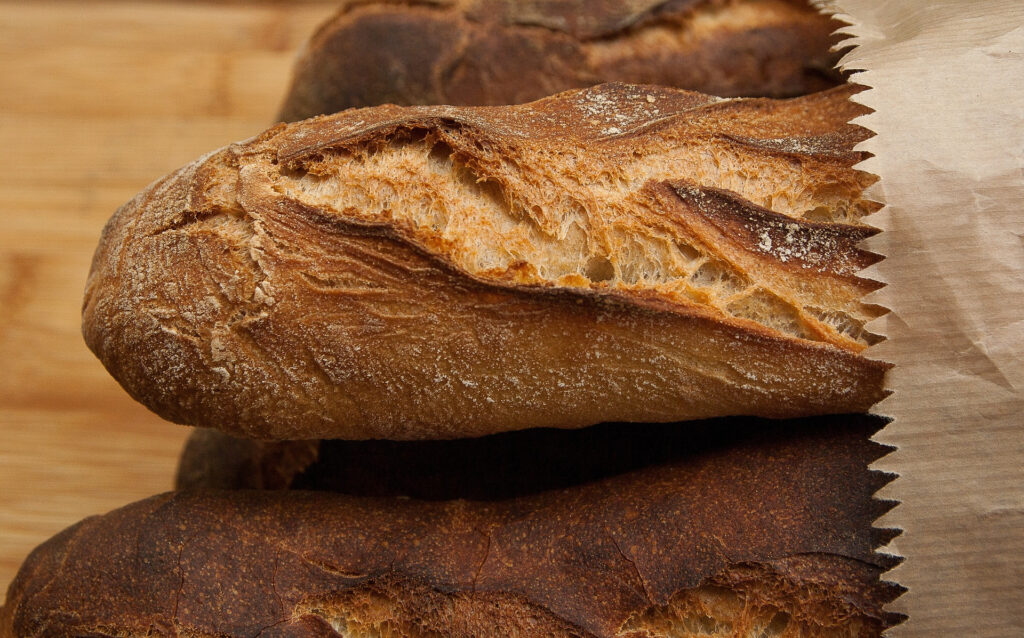Why French Bakeries In France Are Suddenly Shutting Down At Alarming Rates
Energy costs in France have seen a 500 percent increase recently and this is forcing French bakeries to close up shop.
This article is more than 2 years old

France is considered the cultural home of bread baking. In fact, French bakeries are such a quintessential part of the nation’s history that French President Emmanuel Macron ensured the baguette was given UNESCO heritage status in 2022. Unfortunately, skyrocketing costs are shuttering small businesses like bakeries across France.
French bakeries are the lifeblood of many cities, towns, and villages, providing daily sustenance to people at every point of the socioeconomic spectrum. Therefore, the loss of a beloved bakery has a strong impact when it happens. But the costs of energy and raw ingredients are doubling and tripling so fast that many bakers simply call it quits.
CNN interviewed Elodie Chavret, a bakery owner and part-time firefighter in the small town of Millery, France. She is worried that she cannot keep up with the electric bill any longer. It multiplied nearly tenfold between December and January.
When Chavret renewed her contract for the new year, her electric bill shot up from €900 ($978) to €7,500 ($8,146) in January. A government subsidy would lower the bill by €3,000 per month. Even so, Chavret says it’s an “unmanageable” increase.
It isn’t just the electric bill that’s skyrocketing at many French bakeries. Chavret told CNN that the costs of raw materials and gasoline are becoming “unbearable.” She has also had to increase wages for her six employees and is on the brink of closure.
Nicolas Amate owns a bakery in Lons-le-Saunier France with his wife, Nadege, and agrees that French bakeries are struggling to remain open. “Everything has gone up,” he told CNN. “If this continues, we will all close.”
Amate illustrated how much the cost of raw baking materials has escalated for owners of French bakeries. He said their cost of butter has doubled in two years, while flour prices have tripled in just the past 12 months. The Amates have had to raise some of their prices, but say their customers understand the difficulties they are experiencing.
According to CNN, PMI surveys compiled by S&P Global say that inflation has slowed since peaking at an 11-year high last April. But input prices, which include French bakeries, have been rising. French industrial producer prices, or the prices suppliers charge other businesses, showed a 13 percent year-over-year increase in February.
But even though French bakeries are paying much more for ingredients, including eggs, milk, and cream, it’s the energy inflation that’s threatening their businesses the most. The war in Ukraine caused European natural gas prices to rise sharply last year, hitting record levels. Electricity prices soon jumped, and though bakers say they are conserving energy in every way possible, their bills are the highest they’ve ever been.
French bakeries are now paying at least three times their average prices before Russia invaded Ukraine. Prices were also affected in France by a shutdown of almost half of its nuclear power plants in 2022. The closures were for necessary maintenance work, but they cut off nearly 70 percent of the nation’s power supply.
Although the French government has offered support to French bakeries, including the energy subsidy Chavret mentioned, bakery owners say it isn’t enough. A so-called “shock absorber” payment only provides a 20 percent cut on a bakery’s annual energy costs—little comfort when the bill increased over 500 percent. All of the bakers CNN interviewed had raised prices to help recoup some of their costs, but there is a limit to what French people are willing to pay for their daily baguette.
Owners of French bakeries across the country have joined online campaign groups pushing for more government support for their businesses. One Facebook group for bakers staged their first street protest in Paris last January. Bakers who are already laying off workers to save costs fear that closing their doors is the only possible next step.
Bakers are not only afraid of losing their livelihood, but of losing the human connection that French bakeries provide. “If the bakeries closed, we would lose that human side, that side of communication, of mutual aid,” Chavret said. “It’s not in department stores that people take the time to talk.”





